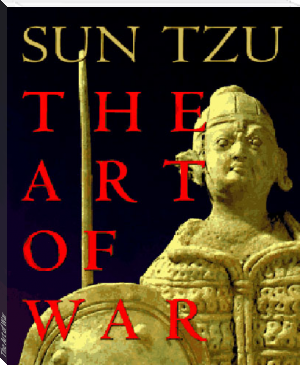The Art of War - Zi Sun (best books to read for success .txt) 📗

- Author: Zi Sun
- Performer: 0976072696
Book online «The Art of War - Zi Sun (best books to read for success .txt) 📗». Author Zi Sun
Bibliography ——————
The following are the oldest Chinese treatises on war, after
Sun Tzu. The notes on each have been drawn principally from the
SSU K`U CH`UAN SHU CHIEN MING MU LU, ch. 9, fol. 22 sqq.
1. WU TZU, in 1 CHUAN or 6 chapters. By Wu Ch`i (d. 381
B.C.). A genuine work. See SHIH CHI, ch. 65.
2. SSU-MA FA, in 1 CHUAN or 5 chapters. Wrongly attributed to Ssu-ma Jang-chu of the 6th century B.C. Its date, however, must be early, as the customs of the three ancient dynasties are constantly to be met within its pages. See SHIH CHI, ch. 64. The SSU K`U CH`UAN SHU (ch. 99, f. 1) remarks that the oldest three treatises on war, SUN TZU, WU TZU and SSU-MA FA, are, generally speaking, only concerned with things strictly military — the art of producing, collecting, training and drilling troops, and the correct theory with regard to measures of expediency, laying plans, transport of goods and the handling of soldiers — in strong contrast to later works, in which the science of war is usually blended with metaphysics, divination and magical arts in general.
3. LIU T`AO, in 6 CHUAN, or 60 chapters. Attributed to Lu Wang (or Lu Shang, also known as T`ai Kung) of the 12th century B.C. [74] But its style does not belong to the era of the Three Dynasties. Lu Te-ming (550-625 A.D.) mentions the work, and enumerates the headings of the six sections so that the forgery cannot have been later than Sui dynasty.
4. WEI LIAO TZU, in 5 CHUAN. Attributed to Wei Liao (4th cent. B.C.), who studied under the famous Kuei-ku Tzu. The work appears to have been originally in 31 chapters, whereas the text we possess contains only 24. Its matter is sound enough in the main, though the strategical devices differ considerably from those of the Warring States period. It is been furnished with a commentary by the well-known Sung philosopher Chang Tsai.
5. SAN LUEH, in 3 CHUAN. Attributed to Huang-shih Kung, a legendary personage who is said to have bestowed it on Chang Liang (d. 187 B.C.) in an interview on a bridge. But here again, the style is not that of works dating from the Ch`in or Han period. The Han Emperor Kuang Wu [25-57 A.D.] apparently quotes from it in one of his proclamations; but the passage in question may have been inserted later on, in order to prove the genuineness of the work. We shall not be far out if we refer it to the Northern Sung period [420-478 A.D.], or somewhat earlier.
6. LI WEI KUNG WEN TUI, in 3 sections. Written in the form of a dialogue between T`ai Tsung and his great general





Comments (0)